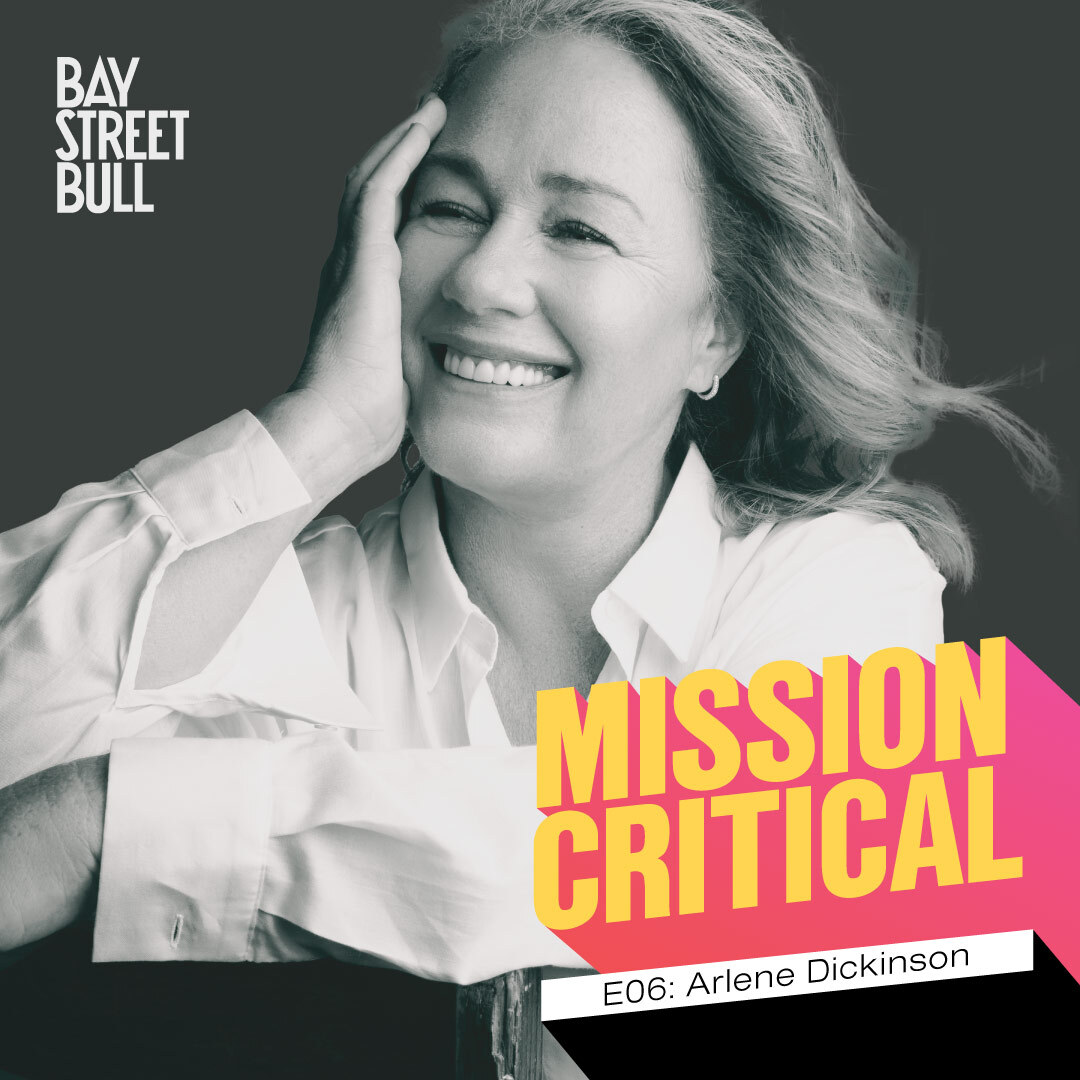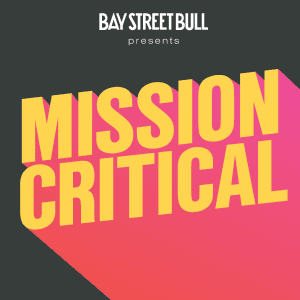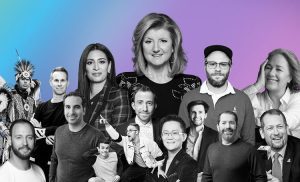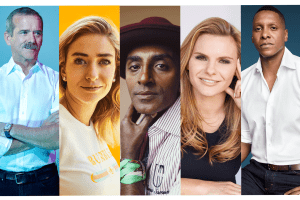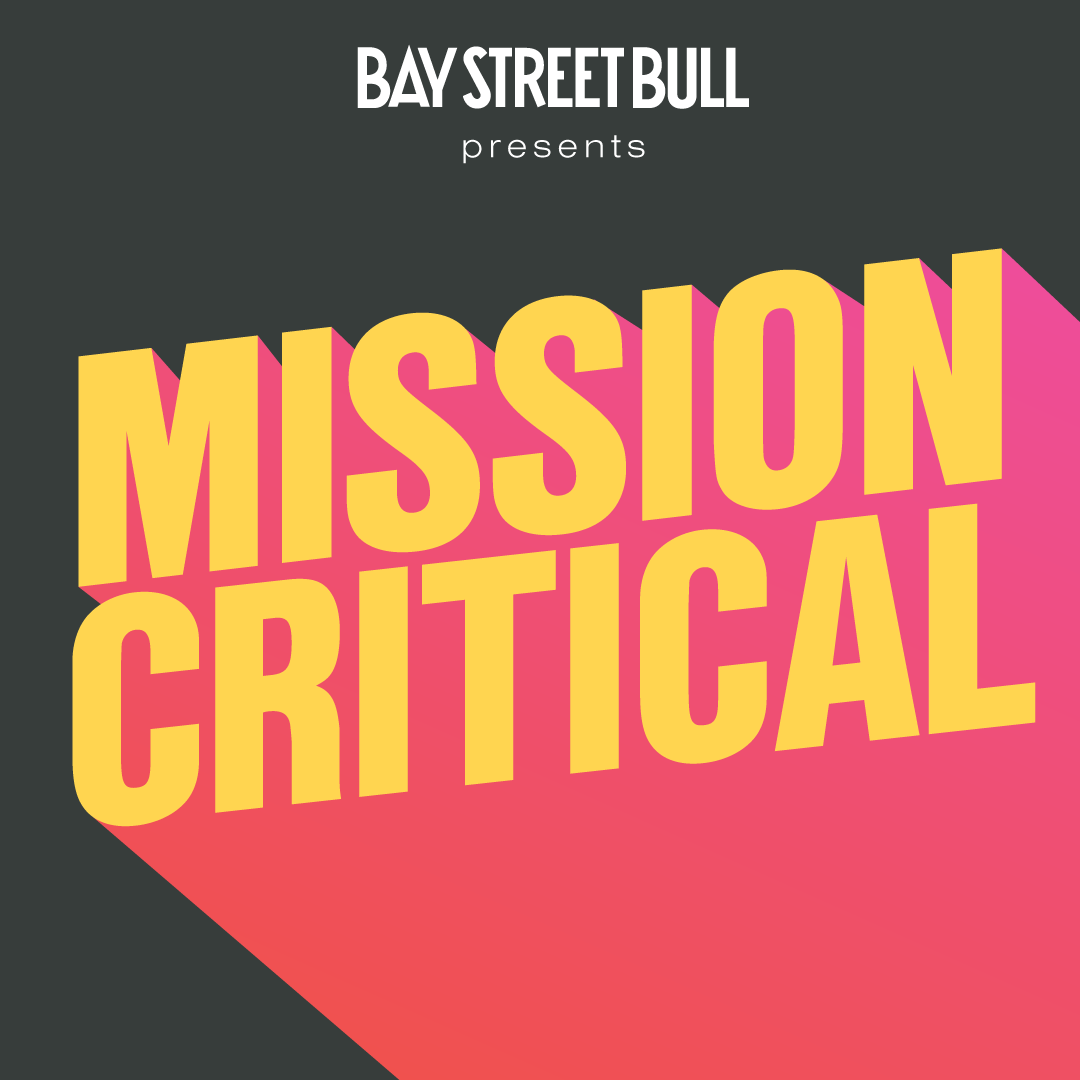How important is optimism in a time where everything seems to be in a general state of chaos? One could argue that entrepreneurs are inherently optimistic given the nature of the business, what with the number of hurdles, uphill battles, and rate of failure that entrepreneurs often experience. District Ventures Capital CEO and Dragons’ Den investor Arlene Dickinson understands this well. In today’s episode, Lance and Arlene chat about reinvention, mental health, and the importance of optimism.
KEY HIGHLIGHTS
[6:20] Entrepreneurs are inherently optimistic people given their tenacity, resilience, and persistence to grow a business.
[12:30] Figuring out your ‘Why’ is more important than saying “following your passion” in order to discover your core purpose.
[16:00] What does reinvention mean to Arlene, and how does she define it?
[26:22] The COVID-19 pandemic has disrupted entire industries. What does reinvention look like in the pandemic era?
[28:03]: There are two words that come to mind when it comes to mental health and the new culture of work: empathy and flexibility.
[32:31] What makes a great business? A long-term vision.
Listen to the episode below or your platform (Apple, Spotify, etc.) of choice.
INTERVIEW
[INTRO]
Welcome to Mission Critical, a podcast about the big picture, the purpose, and the values that drive today’s most game-changing companies, entrepreneurs, and leaders. I’m your host Lance Chung, Editor-in-Chief of Bay Street Bull, and I’ll be introducing you to a group of brilliant minds who are making an impact on the world and forging the path ahead. While they may all be very different from one another, the question remains the same: What’s your mission?
These days, it’s hard not to feel a little cynical about, well, everything. 2020, especially, has thrown some serious curveballs our way. From environmental issues, to murder hornets (remember those?) to civil rights protests, political instability, and a global pandemic to top it off, this year has been rough. So, how important is optimism in a time like this?
One could argue that entrepreneurs are inherently optimistic given the nature of the business. When you experience the amount of hurdles, failure, and uphill battles that entrepreneurs face, there’s no option but to look at the world as half full, to be hopeful and have conviction in your vision in order to see you through the motions. It takes resilience and oftentimes, blind faith, to lead the life of an entrepreneur. On this episode, I’m speaking with one of today’s most respected entrepreneurs, Arlene Dickinson, who understands this very well.
Arlene is a prolific business person and one of Canada’s leading voices on entrepreneurship. When I think of the business community, she is no doubt one of the people that come to mind, which may be due to the fact that she’s been a mainstay on CBC’s Dragons’ Den for over 12 seasons, is a best-selling author, and has her own podcast, Reinvention, where she speaks with other leaders about how they’ve reinvented themselves, and what they’ve learned along the way. All this, on top of running a hugely successful venture capital firm called District Ventures. Suffice to say, Arlene knows a thing or two about resilience and hope.
On today’s episode, we chat with Arlene about reinvention, mental health, and the importance of optimism as an entrepreneur.
Lance Chung: Okay, Arlene! I’m so happy to have you on our podcast. I’ve followed your career throughout the years and of course I’ve seen you on Dragons’ Den. I’m so excited to be speaking with you today. How have you been?
Arlene Dickinson: I’ve been really well, Lance. And I’m excited to speak with you as well. I mean, it’s been interesting times to say the least, but it’s always great because I’m finding that I’m having really good conversations with people, which I was kind of getting away from. We were short handing in our way through everything instead of really talking to people. So I find conversation has come back.
Lance Chung: Absolutely. I think one-on-one conversations and conversations that are not limited to being physically in front of people, which, you know, I do miss that. I wish we could be having this interview in person, but I’m happy to be doing so and connecting and speaking to you for the first time through my computer, at least.
Arlene Dickinson: Yeah, me too.
Lance Chung: So, when I was doing my research to prepare for this interview, I went through some of your social media accounts as it’s a platform that you’re very vocal and active on, and there was a tweet that stood out to me. And you said, “there’s so much good out there. Look for the good in people. It, too, is contagious and spreads easily human to human.” So let’s start there. Do you consider yourself an optimistic person?
Arlene Dickinson: For sure, I am. I mean, for many years I characterized myself as a pragmatic optimist, but I actually just would take away the pragmatic side of it now and just talk about trying to be optimistic. It’s so important in today’s world. And in particular, I think Lance, as you think about, and I know we’re going to talk about this, but about reinventing yourself, I think you have to have an outlook that says anything is possible. I know you’re from Alberta and when you think back to the Calgary floods that happened seven years ago now, that pretty much almost decimated my marketing company, Venture Communications. That was a period of time in my life where I just thought, I’ve been working for 30 years and had this business. It was one of the businesses I was involved in at that section of my life. And I thought, 30 years later of running a business and the flood happens, and maybe you just shut it all down and you just carry on with everything else you’re doing. It was my optimism and my real desire to reinvent that business that actually helped me reframe it in a way that helped other entrepreneurs. So I think to transition it from a traditional marketing communications agency into one that focused on entrepreneurs, and now transitioning again as a reinvention of that industry, of that business venture, into a marketing firm that’s focusing on helping companies in the health and food and wellness space—I think if I hadn’t been optimistic seven years ago when that disaster hit, I wouldn’t be able to now say that we’re helping hundreds and hundreds of companies not only do better, but employ thousands of people and put hundreds of millions of dollars into the economy. So that little bit of optimism and digging deep, and working hard seven years ago has helped me reinvent a company several times into something that now is, really, I think well positioned to do amazing things in North America.
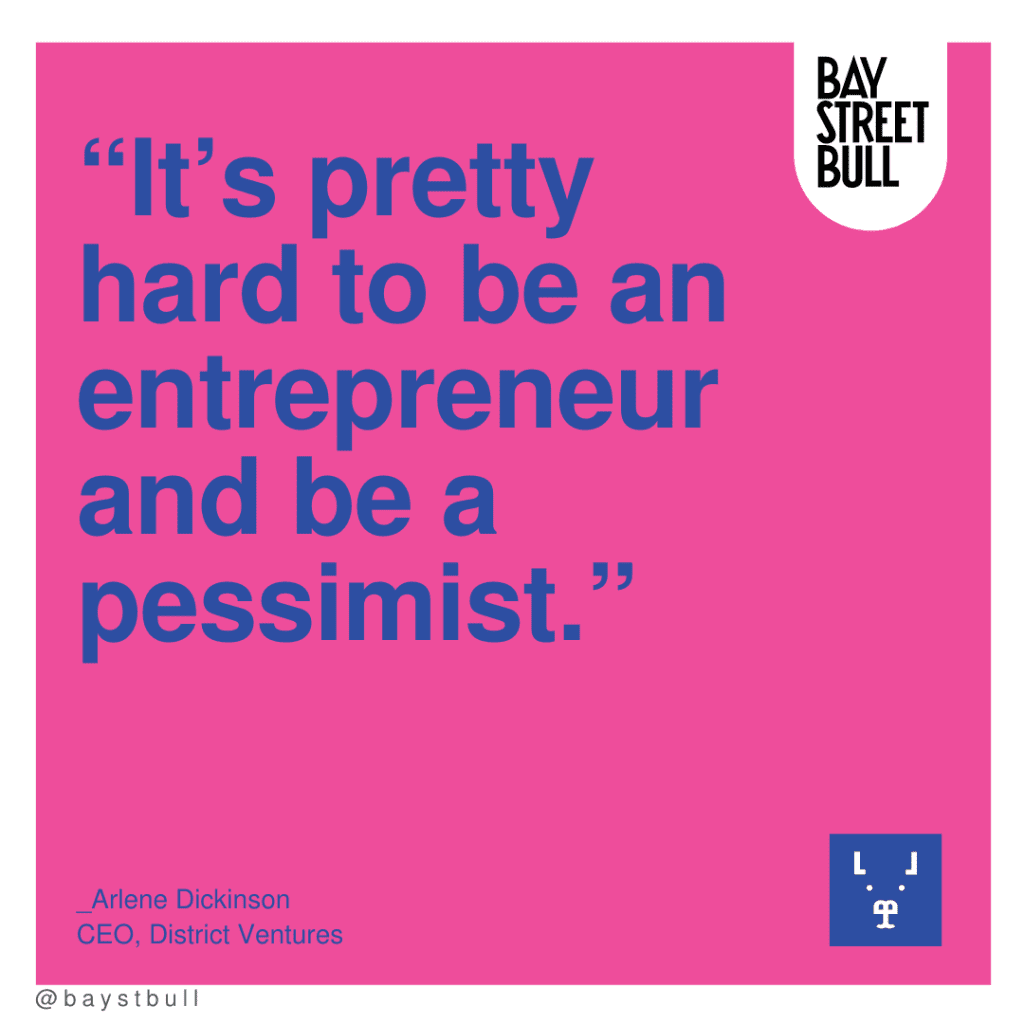

Lance Chung: Global pandemic aside and political instability aside, if we’re just looking at the culture around entrepreneurship, do you think your career as an entrepreneur has conditioned you to look at things as a little bit more glass-half-full? Do you think that being an entrepreneur requires you to inherently be optimistic?
Arlene Dickinson: It’s pretty hard to be an entrepreneur and be a pessimist. I think that those two words probably don’t go hand in hand and if you are pessimistic and you’re an entrepreneur, then you likely aren’t going to have the resiliency and the ability to reinvent, as well as the tenacity and persistence that you need to be able to grow a business. And so, yes, I think optimism would be a character trait that you would probably find quite heavily in entrepreneurs, which is not to say that they’re big risk takers without need. I think they’re calculated risk takers.
Lance Chung: How would you make the distinction between optimism—cautious optimism or pragmatic optimism—and realism, especially within the context of today’s landscape?
Arlene Dickinson: Well, when you’re running a business, you have to be optimistic that things are going to turn out well, but you have to be a realist around what the current conditions are and measuring what is happening so that you can actually act on the conditions, right? So you have to be optimistic about outcomes and about being able to get through challenging times, but you have to be a realist as it relates to your assessment to the situation, how you’re going to deal with the situation, and what potential outcomes might look like. So I think it’s a balance. Realism is being realistic, can lead to pessimism, but I think really all it is is saying is, Okay, what exactly is happening? And not fooling yourself into believing it’s something better than it is or worse than it is, but being able to recognize it for exactly what it is. That to me [is] being realistic.
Lance Chung: And being open to possibilities, whether that’s a good possibility or a negative one. And so obviously, collectively, we’re all trying to get through COVID, a global pandemic, through political instability that we’re seeing with our neighbours down South, as well as in a few other spots around the world. There’s a lot of volatility in the business community. How have you been able to harness optimism and use that as a mechanism to help you cope through all of this? I know that these are things that you’re vocal about and you talk a lot about on social media; your experiences navigating these things. So how have you been able to harness that sense of optimism?
Arlene Dickinson: I think there’s two sides to the question you’re asking and I, from a personal perspective, the last year I’ve experienced a level of anxiety that I’ve never had in my life. And so, I was one of those people that didn’t really understand anxiety. I have, my entire life, had panic attacks at night where I’ll wake up in the middle of the night having a panic attack. And I kind of have been used to that. I get them periodically throughout my life. But then in the last year, I’ve had anxiety in a different time. It could be right before bedtime where I’m just laying there feeling anxious and concerned about things, and my heart will race and I get this pending sense of doom. And I describe it because I think for your listeners that are out there, I think it’s really important to understand that what you see on people’s outside is not necessarily what they’re experiencing inside.
And so for me, how I started to deal with that is trying to understand it more effectively and using things like exercise. I’m really lucky I have a Peloton bike, which frankly has not only helped my mental health, but helped my physical health. And then the Calm app when I’m anxious; and also reading about it, understanding it more effectively, trying to control it more than letting it control me. These are things I think that I was able to work through. But trust me, if I felt that I wasn’t able to manage it, I would have no issue going to get either medical or whether it’s medical help in terms of the whatever relief I needed to get so I could manage it more effectively, or going to a psychologist to get some support in terms of just managing through it.
RELATED: Meditation Apps to Get You Through Self Isolation
But I think we all have to figure out what is going to work for us and not let these things overwhelm us. And it’s very easy right now to get lost in this fear and anxiety that we’re all feeling. We all feel it. And so I guess, sorry, it’s a very long answer, but I think this is a very interesting topic right now. Mental health is critical to us being able to survive for the next year as this pandemic continues and takes its course, until a vaccine is found, until the marketplace is able to not only adapt from a, How do we operate? Like literally, how do we operate as a country? To how do we survive as individuals? I think until that happens, we’ve got to figure out how to stay optimistic and mentally well. And that requires work and effort on our own part.
Lance Chung: You know, one thing that I have found to be incredibly helpful, personally, is being able zoom in and out when needed. When I find things are overwhelming, I like to focus on just putting one foot in front of the other in order to get to where you have to go and focus more on the micro. And then in other instances where I feel that I’ve lost a sense of purpose or something, I’ve found it helpful to zoom out and look at things from a big picture standpoint and see if things are really as big of a deal as they seem. Do you have any personal mantras or any kind of thought processes that you use that you’ve found to be helpful to give you perspective and help you with managing your mental health in that regard?
Arlene Dickinson: Yes, and in my book Reinvention, I do touch on four steps you can take, and how you can actually think about reinventing yourself and managing stress and change, very process-like, because there is a process to it. And the first thing I always talk about is counter-intuitive, it’s looking backwards. It’s kind of looking back at your life and thinking about the lessons you’ve learned in your life, not to look back to beat yourself up or to somehow revisit things that you did wrong, but to look back, to learn about where you’ve come from. And then the next thing I talk about is this notion of what is your core purpose? Figuring out what your ‘Why’ is. I think many of us get so stuck doing things every day without really understanding why we’re doing them, or we’re doing them for the wrong reasons. So figuring out your Why to me is much more important than saying, follow your passion. I mean, follow your passion, sure. But I really think if you’re following your purpose and you understand what your Why is, and why you get out of bed every day, that actually leads to your passion. It actually leads to making you feel like you’re accomplishing something with your life. It actually leads to having people understand kind of your core values and who you are, and centers you.
And then the next thing I talk about is currency; figuring out what it is you’re good at. And you know what, Lance, everybody’s good at something; everybody, we all have skills and talents that we can apply. And maybe they’re not the same as everybody else’s, and thankfully they aren’t, we’re all very different people. So there’s that, and then figuring out what that is and what your skill is.
And then finally thinking about the context of the world; what’s going on around you, what’s happening today? How do you take your past and your Why, and what you’re good at, and apply it in today’s world? And when you have those things kind of running for you and thinking about them practically, then it changes your mindset into thinking about what’s possible instead of feeling stuck in what’s happening right now.
And then I just want to kind of add to the other part of the question you asked me, because I gave you a very personal answer around how I deal with anxiety. You know, I’ve got things I do, but I also have processes I follow. And then the second half of that is professionally, I think how you deal with being stuck or feeling, how do I get out of where I am, is to think about exactly the same four things I just went through. How do you take what your company is good at and reapply it in a different world? And I’ll use [District] Venture as an example. We’re really good at understanding how consumer goods companies grow and build their businesses, and we’re really good at helping brands build themselves out, and we’re really good at understanding how to apply creativity so that we can help companies become competitive and stay equitable in a marketplace. How do you apply that in today’s world? Then you think about what’s happening in the world, where we’re thinking about more of what we’re eating, we’re thinking about what’s going on in the agricultural sectors. We’re thinking about our health in a different way and what we’re actually feeling. So helping companies in that space, using our skillset makes so much sense to me because we know about those types of companies and in today’s world, in the context of today’s world, helping consumer goods companies grow is a huge opportunity. So we have reinvented ourselves to take advantage of what I think is Canada’s next economic opportunity in a major way, which is focusing on helping agricultural and health companies to build themselves. And so you can always reinvent yourself if you think about what you’re good at and apply it against what the market needs.
RELATED: The Science Behind Crafting the Perfect Meal
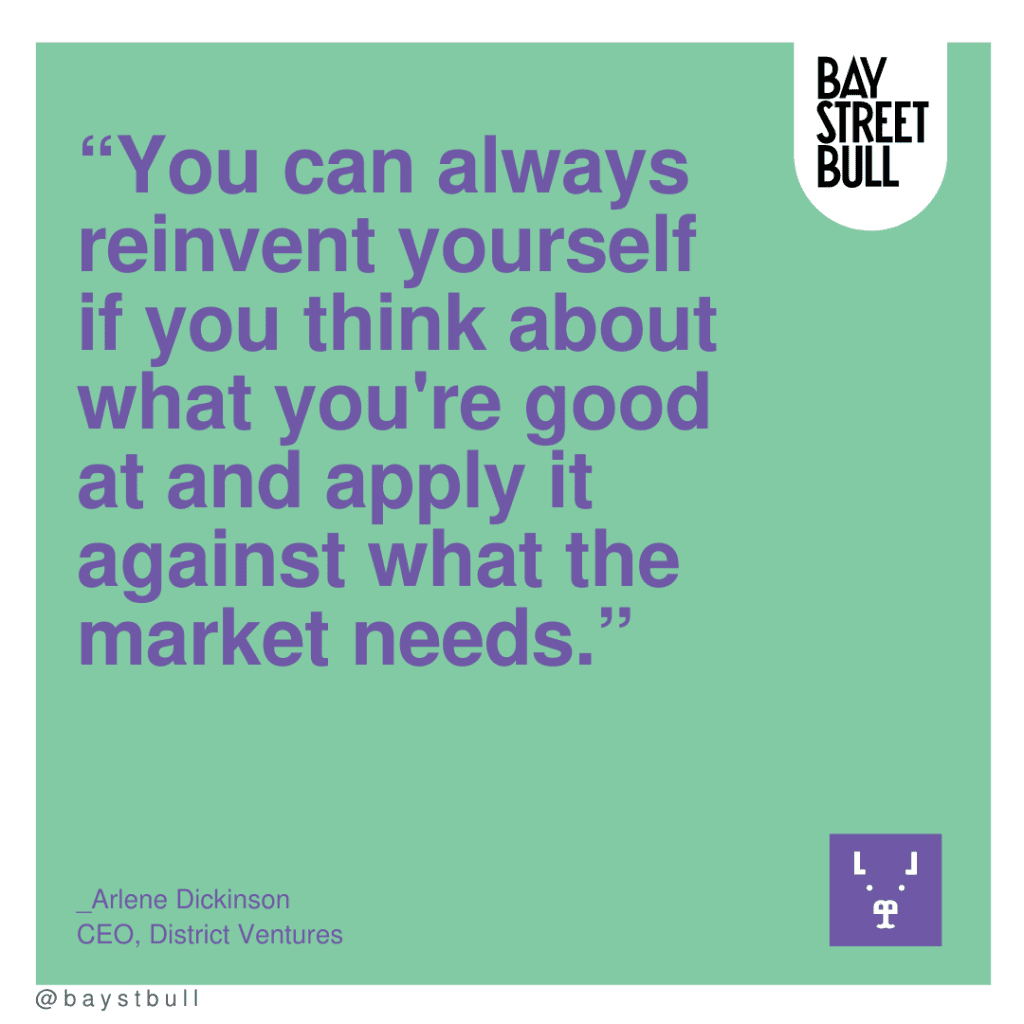

Lance Chung: That’s a great segue into my next question, because you know, you have a book as well as a podcast that focuses on reinvention, which I think is very topical and relevant in a time where we’re seeing a lot of macro and micro shifts in business and culture, adding to what you said. So what does reinvention mean to you and how do you define it within the context of your own experience and also that of the guests that you’ve brought onto your podcast?
Arlene Dickinson: What I have found in speaking to the guests that I have had on my podcast is that almost every single one of them… Well, in fact, every single one of them has had some moment or some thing in their life that has impacted them in a way that’s had them reassess who they are and what they want from their lives. I’ve learned so much from it, Lance. This week I talked to Paul Langlois, who is one of the musicians from the Tragically Hip who was Downie’s best friend as well. He spoke to me about the death of Gord Downie and going through his illness, and how that not only altered the band, and the band obviously will never perform as the Hip again, but it helped him kind of reassess what he wants and who he is.
And generally it is moments like that, whether it’s somebody’s untimely death, whether it’s an illness in the family, whether it’s a divorce, whether it’s a loss of a job, whether it’s something happening that you didn’t foresee in terms of somebody needing something from you from a family perspective, you have to take care of your seniors, parents, et cetera, anything like that that actually causes you to stop in your life and reassess where you are is generally when people reinvent themselves. And I would like to challenge people to say, don’t wait for those moments to think about who you are and what you want from life. Take the time to work on yourself and to think about who you are, where you’ve come from, what you’re good at, and what you can do, and use that to figure out a path forward. And I’d say, if you wait for a disaster or something unfortunate to happen to really assess yourself, then you’ve probably lost an opportunity to live the life you really want to live earlier than you ended up doing it because somebody forced you to.
RELATED: Arlene Dickinson on the Human Path to Success
Lance Chung: Does reinvention have to be a radical change? How do we separate a revolution of ourselves—that is, our professional and our personal identities—from an evolution of ourselves? Or are they the same in your view or kind of on a spectrum?
Arlene Dickinson: I think they’re on a spectrum. I liked the word you said about evolution. I think we can evolve as humans, and we do evolve as humans. Whether we want to or not, we evolve by nature of time passing, by nature of experiences that we’ve had, by nature of the world we live in. But I don’t think of that as reinvention. I think of that as a continuum. It is really part of reinventing. You have to have life experiences in order to reinvent, but I think reinvention is a total recall; it’s a bit of an alt control delete that we used to do on computers.
Lance Chung: A factory reset.
Arlene Dickinson: It’s a factory reset, but you know, the system is still there, right? We’re resetting kind of how we see that, how it works, but we’re not losing the operating system. We’re not losing sight of who we are, but we are rebooting ourselves so that we can work more effectively. It’s probably a bad analogy, but I think that reinvention is, it’s not like, Oh, I’m going to lose weight or I’m going to start exercising. To me, that’s self-improvement and very important, but that’s not reinventing yourself because reinvention requires a mental shift in how you see yourself and who you want to be. And I guess, yes, losing weight could be part of that or getting fit could be part of that, but it’s not a total reset.
Lance Chung: Does reinvention, in your perspective, is it always a conscious decision? What are the different ways that you’ve seen it manifested across the guests that you have had on the show, as well as your own personal experience?
Arlene Dickinson: It is a conscious decision, absolutely. Professionally for businesses, reinvention is something that you set out to do. It’s not something that gradually happens. It’s not something that accidentally happens. It’s something that you’re purposeful about. And I would say probably for personal reinvention, it’s the same. I think you have to be purposeful about it. I think you have to really want to do it because you can’t just wake up and say, Oh, tomorrow I’m going to be blah, whatever this is, you know, fill in the blank and expect it to happen. You have to put in the hard work. And in order to put in the hard work, you have to be purposeful.
[INTERLUDE]
Sometimes, we come to a point in our lives where we question whether we’re on the right path. It’s a moment that many of us can probably relate to and identify, possibly on multiple occasions. Am I doing the right thing? Did I make the right decision? Should I have pursued something else? Why did I start a career in this industry? Sometimes it’s a matter of reminding ourselves to stay the course. And other times, it can result in a dramatic left turn. A drastic, conscious decision to reinvent ourselves. Arlene’s latest book and podcast focuses on just that, reinvention. She’s interviewed everyone from gold-medal Olympian Tessa Virtue to Grammy award-winner k.d. Lang about what it means to ultimately rediscover yourself, your values, and your potential.
Lance Chung: What are some of the favourite stories that you’ve come across with reinvention on your podcast? And I guess just in your life in general, have there been any that have particularly stuck out and spoke to you?
Arlene Dickinson: Just going back through my guests, like Tessa Virtue, who’s an Olympian gold medal-winning figure skating dancer who had a career in sports and athleticism who now is going to university and wants to become an entrepreneur. I mean, that’s a complete reinvention. You take people like Rex Huppke, who I spoke with, who’s a journalist with the Chicago Tribune who started off as a chemical engineer and was writing on the side for fun because that’s what he liked to do. And then realized that what his purpose was, and his passion was, was to be a journalist and help inform people, and stop being a chemical engineer to go and do that. Almost everybody I spoke to on my podcast has had a major story of reinvention. And I mean, of course my favorite story of reinvention is frankly, [District] Venture and what we’ve done with it. I mean, to me, to change a business that’s in a very traditional industry around really shifting it to something that I think is going to have a huge impact in our nation around agricultural and health companies, that’s exciting. And I feel so proud of that. So yeah, I can’t not mention that, too.
RELATED: How Flourish Pancakes Founder, Andrew Maida, is Building a Breakfast Empire
Lance Chung: Tessa is a really interesting example too, because we had Tessa Virtue on our cover last year. And I think it’s so interesting to speak with athletes because so much of their formative years are dedicated towards this one crystal clear purpose. And that’s just getting on the podium, being the best in in the sport that you are in. And then once you’re done, I mean, you’re still so young and you have this whole lifetime ahead of you. You’re still in your twenties or early thirties, and you’ve retired that career so early. And so I think, her career trajectory has been so interesting because she basically hit the pinnacle of her career and got to the very top of what she did there in skating. And now using the lessons that she’s learned along the way, because obviously you have to have so much focus and determination and commitment to be an athlete and an Olympian, and channeled and harnessed that towards building up a personal brand and being able to navigate business decisions. I think that that’s been such an interesting thing to see.
And I have to say once we had put that story out, I have never seen a fan response quite like the fandom behind Tessa Virtue.
Arlene Dickinson: She is beloved.
Lance Chung: Oh my goodness. We had people like tweeting and messaging us, and asking for mailed copies from Japan, like from all over the world. It was quite remarkable.
Arlene Jenkins: As you’re talking, I’m thinking about, and I don’t know if you know Steve Jenkins, who is one of the dads of Esther the Wonder Pig. You know, you want to talk about reinvention. Have you ever followed Esther the Wonder Pig?
Lance Chung: I have not. I’m not too familiar, but I’m fascinated.
Arlene Dickinson: You have to follow Esther the Wonder Pig on Facebook and Instagram and Twitter. Steven, and his partner, Derek; Derek was a musician, sorry a magician. And Steve was a realtor and they fell in love and they got together. And one day Steve went out to buy what he thought was a small tea pig for Derek as a gift, brought it home, only to find out that this little pig was actually going to become an 800-pound pig. And so they have completely reinvented themselves. They have become activists for animal rights. They have a sanctuary now where they raise and help abandoned animals. They spread messages of love and peace and goodwill for the LGBTQ community. They have completely changed their life and they change their life because they found purpose in caring for animals. And particularly for Esther, who’s this fabulous pig that I got a chance to meet. She smiles, you feel like she’s talking to you, but it’s them that have reinvented themselves as people. And then I think about Tareq Hadhad, who I had on my podcast, who was a Syrian refugee who came to Canada. My goodness, what a story of reinvention. You talk about reinventing yourself, it’s just phenomenal. And I love that he’s using food and chocolate, something that people love, as a mechanism to spread a message of tolerance and peace. Again, you know, reinvention can be something that just lets you express yourself in a new way. And I keep coming back to this notion that mental health, and food, and taking care of each other is central to what the world is going through right now. And Canada can be very successful in that. And these individuals are proof of that.
Lance Chung: I mean it seems like a common denominator is this recalibration of purpose once you’ve kind of taken a pivot or taken a left turn or a right turn that diverts from the path that you were on before now. Bringing us up to speed to everything that’s going on today, how have you seen reinvention manifested as a result of the pandemic?
Arlene Dickinson: I think the country is reinventing itself in many respects. I mean, as I said to you, I think that between the pandemic and global warming, and increased barriers to international trade, there’s a lot of pressure on the supply chain for Canada’s agricultural sector. So I’ll use that as a great example. The sector is adapting because of the pandemic to becoming more self-reliant and responding to this increased demand for more homegrown types of food. So we see an emerging opportunity in agriculture that wasn’t there before, and the business and the industry is really reinventing itself to shift to answering what consumers now want. And you’re seeing it in real time. You’re seeing supply chains being managed differently. You’re seeing the types of food and product that we’re consuming, being managed differently. You’re seeing less of the private labels, and stores being more about these interesting artisanal types of brands that are grown and produced right in our backyard. And people are craving that. And so there’s a sector that I think is really going through a reinvention and doing it in response to a pandemic.
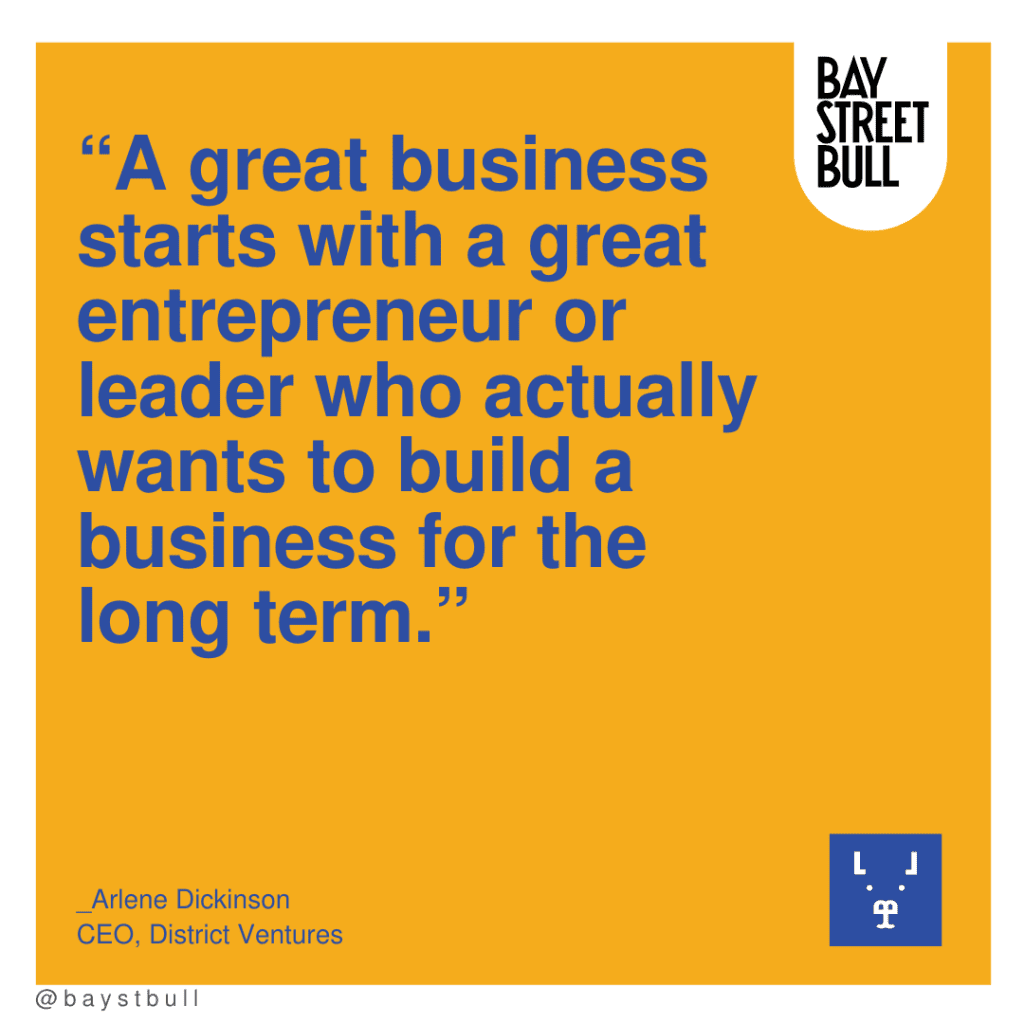

Lance Chung: Circling back to our earlier conversation around mental health, you’ve obviously been a big advocate of mental health awareness. And earlier this year, as Canada was about to enter quarantine, you said that “Canada faces an epidemic of mental health issues.” How have you seen those mental health issues intersect with our conversations around business and the culture of work now that we’ve had a few months or the majority of the year to navigate quarantine and the pandemic? How have you seen those conversations intersect with mental health?
Arlene Dickinson: There are two words that immediately came to mind when you said that and the first word is empathy. I think leaders have got to demonstrate an empathy that, in the past, might’ve been seen as a weakness. And I would say, not that men aren’t good at this, but I do believe that female leaders are already very good at potentially having more empathy and understanding of what’s going on with their teams. But I would say in general, all leaders have got to recalibrate their ability to empathize what their team is going through because you don’t know the mental health concerns that each of your team have had. And in the past, many times that was hidden by them because they didn’t want to be vulnerable or expose to anybody what they were going through. And that hasn’t changed. People still don’t like to talk about the struggles they have, but if ever there was a time for us to be hyper aware of, Are you okay? Can I do anything for you? Do you need support? What’s happening? Do you want to work at home? Do you want to work at an office? Do you have room at home? Do you have the tools you need to be able to succeed at? Can you travel on public transit? There’s so many things that people are struggling with and I think being hyper aware of those things really matters.
And then the next thing is the second word that came to my mind is flexibility. That’s another thing leaders probably haven’t demonstrated enough of in the past is this notion of being flexible, of allowing people to work when and where they need to in order to be successful. And that requires a give and take because many of us have businesses that have office space and rent that we have to deal with, et cetera. So how do you manage all of these things without putting the business out of business? Can you provide flexible times and days? Can you give people optionality in terms of the days they’re in the office and the days they are not? Can you be flexible in terms of their time that they’re in the office? These are things that we have to consider as leaders to be able to help people’s mental health be strong through all this.
And then I guess maybe the final point on that is checking in with the team and regular communication. Again, you know, I’d say we were all moving so fast prior to the pandemic that potentially we weren’t talking to our teams as much as we should have been and needed to. And now that we have an opportunity to do so, we should be making sure that we have regular touch points with them as a group and as a team. And that we’re including them in the decision process and letting them know what’s happening and working with them as opposed to directing them. Leadership right now is a very different thing. And people need leaders to stand up and step out, and make sure that they’re strong, but they also need leaders that are vulnerable and committed to communicating and committed to being there with their teams. And so this is a different type of leadership that we haven’t seen or needed before.
Lance Chung: Yeah. It’s not like they’re mutually exclusive. All of these things can be manifested in one leader. And I think that’s something that just needs to be encouraged and has obviously highlighted a need for more leaders that are able to showcase those values and those traits. Have you seen the stigma around talking to a therapist, mental health services—have you seen any changes in the conversation or any stigma around that, especially in the business community?
Arlene Dickinson: I don’t know that I have enough insight into whether the stigma has changed. I sure hope it has. I know one of the things we do is we regularly remind people to access our wellness programs to make sure we all have health benefits, or many companies have health benefits that offer mental health counseling payments. If you need to go and seek some help, that the payments are covered for it. So I sure hope that companies are encouraging their teams to access the healthcare that’s provided. I sure hope that there is no stigma attached to it because there shouldn’t be, we all can suffer and all have, at some point in our lives suffered, whether it’s anxiety or depression or fear or bereavement or whatever. The grief that we’re all feeling because we’ve lost the light that we all had. And now, we’re dealing with a grief, a sense of overwhelming grief about what was, and what isn’t now. All of us are dealing with that. And so to think that there’s a stigma attached to mental health at work, it would be very unfortunate if that’s the case.
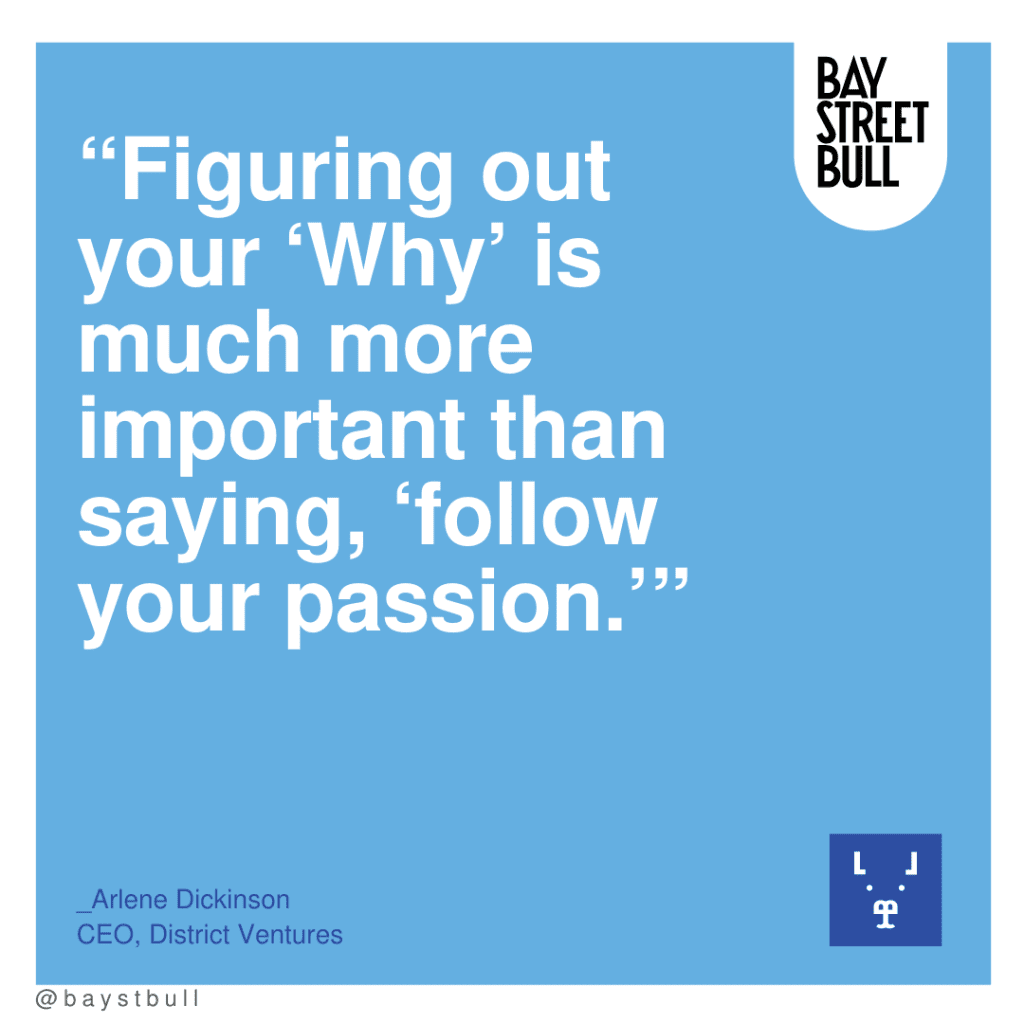

Lance Chung: You’re a dragon on Dragons’ Den and have been on the show as an investor virtually since the beginning. And obviously you have your own experience being the spearhead for District [Ventures]. At the end of the day, what do you think makes a great business? One that has longevity and also can survive in a cultural and business climate that demands more and more of companies?
Arlene Dickinson: I think a great business starts with a great entrepreneur or great leader who actually wants to build a business for the long term. So it’s interesting you say, is it one that is there forever? I don’t think forever. No because I think industries come and go. But I do think when you start a business with the notion that you’re trying to build something that’s sustainable and that is there for the long term, that the decisions you make are going to be more socially-driven, are going to be more about the health and welfare of the people that work with you. And I think you’re going to try and deliver a product or a service offering that can withstand the test of time and not be just only as good as the last Google review you had. In other words, you want to get five stars all the time, because 10 years from now, somebody is going to go back and see those reviews and it’s going to be consistently good versus I don’t care if it’s bad reviews because I’m not going to be around next year. If you’re only in it for making money, then I don’t think that’s what makes a good business. I think a good business is one that pivots, changes with the time when it needs to, but holds onto its values, and its core philosophies, and principles, and thinks about the legacy it leaves in its wake because every business does leave a legacy in its wake.
Lance Chung: Last question here, this is one that I usually end off all my interviews on at the end of the day, what is your mission? What is your purpose? What drives you and has you waking up every day? What gives you purpose?
Arlene Dickinson: Professionally, my singular purpose is to try and help the agricultural and health sectors in Canada and entrepreneurs in that space succeed. And that is why I’ve created my fund District Ventures. That’s why I created the accelerator at District Ventures. It’s why I have a marketing fund that District Ventures and a marketing company at District Ventures. And it’s why I have Venture Communications focused on it. I’m putting all my effort against helping support entrepreneurs in the food and health space to succeed. Because when we do that, I know Canada will succeed. I’m very much driven to helping our nation be successful economically, but also helping entrepreneurs be successful in terms of fulfilling their dreams and their visions in this country. It’s absolutely my purpose. I get up every day to do just that. How do I help an entrepreneur be successful in this space? And then personally, my purpose hasn’t changed. It’s always going to be about making sure that I’m living my values and my family. That hasn’t altered.
[OUTTRO]
This is a moment of transformation that we’re going through right now and as you’ve heard, reinvention can manifest within an individual, as well as entire industries and communities as we are bearing witness to now. So, how can we create a semblance of stability when everything around us is undergoing such a radical change? The key is to reevaluate ourselves as leaders. To step out, as Arlene puts it, and remind ourselves to lead with our values, with empathy, compassion, and agility in a way that is sustainable in the big picture. A touch of optimism doesn’t hurt, either.


